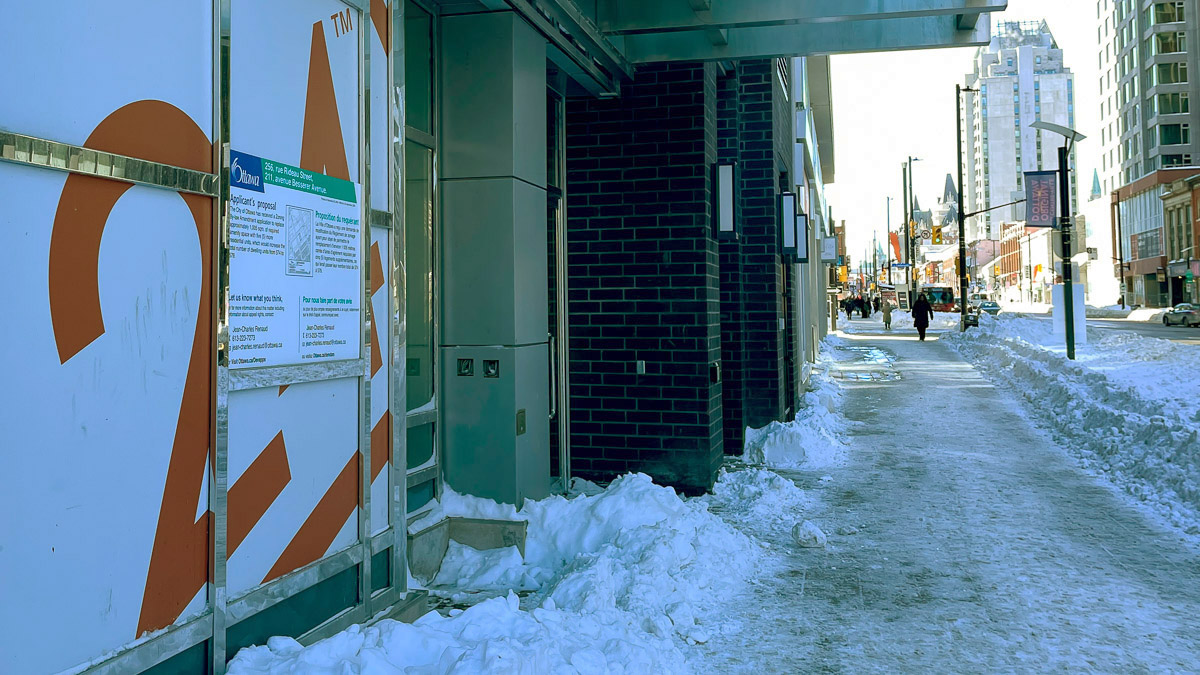Ottawa’s planning committee turned down a developer’s request to add five more units to a pair of student high rises in the ByWard Market, citing concerns about “quality of life” for residents because of reduced amenity spaces.
“We’re always trying to squeak out more housing, but there is a tipping point,” said Somerset Coun. Ariel Troster during the Feb. 19 committee meeting.
Under the bylaw, Alma ByWard Market (formerly Envie Rideau), at 256 Rideau and 211 Besserer streets, is operating with zoning exceptions on amenity space after a decision from the Ontario Land Tribunal. The developer requested 579 dwelling units with 1,349.8 square metres of amenity space, or 2.33 square metres per unit.
After debate, the committee supported the staff’s recommendation to refuse the amendment 8-3. River Coun. Riley Brockington, Kanata North Coun. Cathy Curry and Barrhaven East Coun. Wilson Lo opposed.
Tim Beed, a planner with Fotenn representing Alma, revealed developers were looking to turn underground commercial storage into more amenity space to make up for the lost study rooms.
Beed also highlighted existing amenities at Alma, such as a pool, patio space, lounges, a fitness centre and a 24-hour ground-level grocery store.
According to Beed, most of the units in Alma are designed for single tenants and are about 300 square feet or 28 square metres.
Brockington supported developers, pointing to the urgent need for more units.
“We are in a housing emergency. We’ve declared it, and we should do everything we can to facilitate housing,” said Brockington, who later brought forward a motion to approve the amendment, which the committee turned down.
To other councillors, these plans came off as underdeveloped.
“This is one of these situations where we have a product that’s not fully baked in front of us,” said Beacon Hill-Cyrville Coun. Tim Tierney.
In an interview with Capital Current after the meeting, Kitchissippi Coun. Jeff Leiper, chair of the committee, emphasized their position.
“The clear message is that amenity space is important to this committee,” he said. “It can’t just be about the number of units; there does have to be some focus on the livability of those units.”
Troster agreed in an interview with Capital Current.
“We’re in a housing crisis, but a lot of developers are coming to us with applications for very, very tiny apartments, and we saw during the pandemic what it’s like when people are cooped up in their apartments and have no place to go,” she said.
“Students deserve to be treated like any other resident in our city, and even if they’re living in very small apartments, they have a right to amenity space.”




